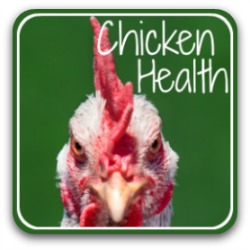- Home
- Egg Nutrition
- Cholesterol
Cholesterol in eggs: benefit or harm?
Please note: reliable evidence based medical sources have been used in compiling these facts.
However, this page is written as general information only. It is not intended as medical advice and should not be taken as such. If you're worried about your health you should always see your doctor.
Those of us who raise our own chickens know how delicious their eggs are.
We also know that they're an excellent source of protein as well as essential vitamins and Omega-3 oil.
But what about the level of cholesterol in eggs?
Years ago, medical advice was that eggs, in particular yolks, were a dangerous source of cholesterol and should be avoided at all costs.
What does the evidence show today?
Should we really be worried about eating the delicious produce our chickens give us?
What exactly is cholesterol?
It's a waxy deposit made in the liver and found naturally in our body cells and in some foods.
Let's be clear about this: cholesterol is essential to a healthy body. We need it to create Vitamin 'D' and some essential hormones, and to help us digest fat.
It's carried round the bloodstream in a kind of capsule called a 'lipid'. The liver, as well as making cholesterol, also gets rid of any excess.
This is a long, detailed article.
If you want some particular information, use these links to jump to that section.
LDL vs HDL cholesterol.
There are two types of lipid: high density (HDL) and low density (LDL) lipoproteins.
HDL cholesterol: good or bad?
HDL cholesterol is known as "good cholesterol", because it's responsible for carrying excess cholesterol which your body doesn't need back to the liver, where it's removed from the body.
So ideally, the amount of HDL in a cholesterol count should be relatively high – or at least, higher than for LDLs.
What is LDL cholesterol?
It's more currently called 'non-HDL cholesterol', because there's now evidence that other non-HDL lipoproteins can also effect health(2).
For simplicity, though, in this article we'll refer to the problematic cholesterol as LDL.
If the body consumes or makes too much LDL cholesterol, excess is deposited in the blood. From there, it's left on the walls of blood vessels, where it can build up and narrow blood vessels.
And narrowed blood vessels can cause strokes and heart attacks.
So what causes high cholesterol?
Ideally, the lipid count should be balanced but in people who have dangerously high cholesterol, LDLs are higher than HDLs, and the amount of HDL is very low.
In other words, the LDLs are too much for HDLs to manage, and remain in the body potentially blocking blood vessels.
Sometimes genetics cause too much cholesterol to be made in the body – that's the case for my family.
More often, though, high cholesterol is caused simply by eating too much saturated fat. Other factors like age, ethnicity, gender, smoking and lack of exercise are also important, but outwith the scope of what we're addressing.
Which is: are eggs considered a damaging, high fat, high cholesterol food?
Are eggs bad for cholesterol?
The way it used to be: my dad's story.
How do I come to know so much about cholesterol? I have been researching and learning about it since I was ten years old.
Why?
Because that's how old I was when my dad was diagnosed with genetic heart disease: 'Familial Hypercholesterolemia'.
It means that the body creates too much cholesterol, and it's traditionally controlled with drugs. Without those drugs, my dad would have died at a very young age.
 My dad, who stopped eating eggs and egg products when diagnosed with Familial Hypercholesterolemia in the 1960s.
My dad, who stopped eating eggs and egg products when diagnosed with Familial Hypercholesterolemia in the 1960s.He was advised to completely cut out – not control, but eliminate – eggs and egg related products from his diet.
In his later life, though, medical opinion and evidence changed and he was told to start eating eggs again.
Why?
Because he had problems associated with the lack of various essential vitamins, minerals and oils they provide. In particular, he developed osteoporosis – a known result of lack of Vitamin 'D'.
And eggs are one of the foods richest in Vitamin 'D'.
The doctors admitted that their advice, sincerely given in the 1960s because it was based on facts as they were known at the time, were no longer right(3, 4).
Not eating eggs had done far more damage than eating them would have done.
How much cholesterol is there in eggs?
My dad's story reflects very well the changes in thinking about this.
It's always been known that one egg contains 186 milligrammes of cholesterol – which is 124% of the daily recommended amount per person(5).
So it's absolutely right to say that eggs are high in cholesterol.
Do egg whites have cholesterol?
There is no cholesterol at all in egg whites – it's concentrated in the yolk. For that reason, many people eat egg whites only.
But that's not necessarily a good thing. Here's why.
The benefits of cholesterol in eggs: current evidence.
There are two critical differences now compared with even ten years ago:
- Even commercially produced eggs now have 13% less cholesterol and 64% more Vitamin 'D' (the source of my dad's osteoporosis) than eggs eaten even ten years ago(6).
- Research has shown unquestionably that eating eggs causes the body to increase HDL – which we know is the 'good' cholesterol(7, 8).
- That's a positive advantage even for people with Familial Hypercholesterolemia, because those at risk with elevated LDL cholesterol levels often have very low HDL count at the same time.
- The cholesterol in eggs also causes the LDL – 'bad' cholesterol – cells to enlarge. That's important, because those larger 'capsules' of cholesterol are less likely to enter the artery walls and deposit the cholesterol there.
Cholesterol in eggs: summary.
So yes, there is cholesterol in eggs. But don't be put off eating them because you have heard they cause harm.
That information is out of date and known to be inaccurate.
Far from harming, eggs may be one of the best foods for controlling, perhaps even lowering, cholesterol.
They're an inexpensive way of eating a healthy food, a great source of the critical vitamin 'D', and complete protein.
 One of my favourite egg recipes: scrambled eggs, avocado and smoked salmon on a fresh Italian ciabatta. Yum!
One of my favourite egg recipes: scrambled eggs, avocado and smoked salmon on a fresh Italian ciabatta. Yum!Further reading.
For further information about whether animal fats, including those in eggs, are the real issue in heart disease, "Nourishing Traditions" by Sally Fallon is a well researched, thought-provoking book which also has some great egg recipes included.
I own the Kindle version and thoroughly enjoyed reading it.
Want more information about chickens and their eggs?
Sources.
1. American Heart Association: HDL, LDL, Cholesterol and Triglycerides. Pub. 2020.
2. British Heart Foundation: High Cholesterol – Symptoms, Causes & Levels. Pub. 2022.
3. Djousse and Gaziano: Egg consumption and the risk of heart failure. Pub. Physicians' Health Study, 2008.
4. McNamara, D. J.: The impact of egg limitations on coronary heart disease risk: do the numbers add up? Pub. 2000.
5. American Heart Association: Are Eggs Good for You or Not? Pub. 2018.
6. Hoenselaar, R: Saturated fat and cardiovascular disease: the discrepancy between the scientific literature and dietary advice. Pub. National Centre for Biotechnology Information, 2011.
7. National Human Genome Research Institute: Learning About Familial Hypercholesterolemia. Pub. September, 2011.
8. British Heart Foundation: The truth about eggs and cholesterol. Pub. 2011.
- Home
- Egg Nutrition
- Cholesterol















